Halloween Poetry : Spirits of the Dead, Edgar Allan Poe
Spirits of the Dead
By Edgar Allan Poe
I
Thy soul shall find itself alone
’Mid dark thoughts of the gray tombstone—
Not one, of all the crowd, to pry
Into thine hour of secrecy.
II
Be silent in that solitude,
Which is not loneliness—for then
The spirits of the dead who stood
In life before thee are again
In death around thee—and their will
Shall overshadow thee: be still.
III
The night, tho’ clear, shall frown—
And the stars shall look not down
From their high thrones in the heaven,
With light like Hope to mortals given—
But their red orbs, without beam,
To thy weariness shall seem
As a burning and a fever
Which would cling to thee for ever.
IV
Now are thoughts thou shalt not banish,
Now are visions ne’er to vanish;
From thy spirit shall they pass
No more—like dew-drop from the grass.
V
The breeze—the breath of God—is still—
And the mist upon the hill,
Shadowy—shadowy—yet unbroken,
Is a symbol and a token—
How it hangs upon the trees,
A mystery of mysteries!
HAPPY HALLOWEEN everyone !!!!
The Elements : Water, giver of life
Water, giver of life
Water, is a great necessity, without it nothing can live. Only earth and water can bring forth a living soul. Such is the greatness of water that spiritual regeneration cannot be done without it.
Thales of Miletus concluded that water was the beginning of all things and the first of all elements and most potent because of its mastery over the rest. Pliny said “Water swallow up the earth, extinguishes the flame, ascends on high, and by stretching forth as clouds challenges the heavens for their own, and the same falling down, becomes the cause of all things that grow in the earth.
Water is a cleansing, healing, psychic, and loving element. It is the feeling of friendship and love that pours over us when we are with our family, friends and loved ones. When we swim it is water that supports us, when we are thirsty, it is water the quenches our thirst, another manifestation of this element is the rainstorms that drench us, or the dew formed on plants after the sun has set.
The power of the energy of Water, can be felt by tasting pure spring water, moving you hand through a stream, lake, pool, or bowl full of water. You can feel its cool liquidity; it’s soft and loving touch, this motion and fluidity is the quality of Air within Water. This Water energy is also contained within ourselves, our bodies being mostly composed of Water.
As well as being vital for life, within the energy of this element is contained the essence of love. Love is the underlying reason for all magic. Water is love.
Water is a feminine element, it also the element of emotion and subconscious, of purification, intuition, mysteries of the self, compassion and family. It is psychic ability; water can be used as a means of scrying or as an object for meditation. Water is important in spells and rituals of friendship, marriage, happiness, fertility, healing, pleasure, psychic abilities and spells involving mirrors.
The element of Water and the pagan Irish Goddess : Boann and the Irish God : Nechtan
eltic (Irish) Goddess of the River Boyne and mother of Angus Mac Og by the Dagda. She was the wife of Nechtan, a god of the water. Likewise, Boann was herself a water-goddess, and one of her myths concerns the water. According to legend, there was a sacred well (Sidhe Nechtan) that contained the source of knowledge. All were forbidden to approach this well, with the exception of the god Nechtan (as was noted, Boann’s husband) and his servants. Boann ignored the warnings, and strode up to the sacred well, thus violating the sanctity of the area. For this act, she was punished, and the waters of the defiled well swelled and were transformed into a raging river, a river that pursued her. In some versions, she was drowned; while in others, she managed to outrun the currents. In either case, this water became the river that was known henceforth as the Boyne, and Boann thereafter became the presiding deity.
Another aspect of the myth of Boann is that she bore Angus. She and the All father of the Tuatha De Danaan, the Dagda, engaged in an illicit affair that resulted in the birth of this god of love. However, since both Boann and the Dagdha wished to keep their rendezvous a secret, they used their divine powers to cause the nine month gestation period to last but a single day – or so it seemed, for the sun was frozen in the sky for those nine months, never setting and never rising. On this magical day, Angus emerged into the world. She held the powers of healing. Variants: Boannan, Boyne.
Ref : Pagan elements of Water
Its A Sheeps Soul, Poem By : fayaz bhat
Its A Sheeps Soul
By : fayaz bhat
O cherisher! Of hairy goats, rocky ridges,
Still vales and white-woolen sheep;
Of my love, of melodies, of muses, of her beau;
It’s the soul of a forgotten sheep
Looking for her poor pastor, his white drove
And, the rest in shade;
Or ‘tis a shepherd, a shepherdess more,
Singing in solitude, rhyme, underneath a tree
In the relaxed midday of jubilant springs,
Ballads, lounged beside the sitting slept sheep.
Or; ‘tis that boy in the wild highs
Playing floyera reclined on the mossy rock—
Goats bleat and forget to graze;
Waking up the beasts, waking up the breeze,
Eared by the deer, cheered by the crows,
’lauded by the woods, echoed by the vale.
Free her! Guide her! For it says so sweet:
My abode’s among the weeds,
The wild flowers grow, the stony meads live.
Irish Landscape Photography : Slievenamon Bog, County Tipperary, The Bog Lands a Poem By : William A. Byrne
The Bog Lands
By William A. Byrne
THE purple heather is the cloak
God gave the bogland brown,
But man has made a pall o’ smoke
To hide the distant town.
Our lights are long and rich in change,
Unscreened by hill or spire,
From primrose dawn, a lovely range,
To sunset’s farewell fire.
No morning bells have we to wake
Us with their monotone,
But windy calls of quail and crake
Unto our beds are blown.
The lark’s wild flourish summons us
To work before the sun;
At eve the heart’s lone Angelus
Blesses our labour done.
We cleave the sodden, shelving bank
In sunshine and in rain,
That men by winter-fires may thank
The wielders of the slane.
Our lot is laid beyond the crime
That sullies idle hands;
So hear we through the silent time
God speaking sweet commands.
Brave joys we have and calm delight—
For which tired wealth may sigh—
The freedom of the fields of light,
The gladness of the sky.
And we have music, oh, so quaint!
The curlew and the plover,
To tease the mind with pipings faint
No memory can recover;
The reeds that pine about the pools
In wind and windless weather;
The bees that have no singing-rules
Except to buzz together.
And prayer is here to give us sight
To see the purest ends;
Each evening through the brown-turf light
The Rosary ascends.
And all night long the cricket sings
The drowsy minutes fall,—
The only pendulum that swings
Across the crannied wall.
Then we have rest, so sweet, so good,
The quiet rest you crave;
The long, deep bogland solitude
That fits a forest’s grave;
The long, strange stillness, wide and deep,
Beneath God’s loving hand,
Where, wondering at the grace of sleep,
The Guardian Angels stand.
Monday Morning Nature Photography and a Poetry , “The Spiders web” by E.B. White
This Morning while walking through our local woods, I came across a Gorse bush and noticed that its was decorated with spiders webs. Each web was covered in early morning dew, so I started to take a few photographs, while doing so I noticed that the spider who had most likely spent most of the night creating these amazing structures was still at work.
It was a great moment! just to stop and watch her as she continued to work on finishing just another one of so many of her webs, I managed to captures some close up images , some of which I share here – 🙂 🙂
“The Spiders web” by E.B. White
The spider, dropping down from twig,
Unfolds a plan of her devising,
A thin premeditated rig
To use in rising.
And all that journey down through space,
In cool descent and loyal hearted,
She spins a ladder to the place
From where she started.
Thus I, gone forth as spiders do
In spider’s web a truth discerning,
Attach one silken thread to you
For my returning.
E.B. White
Spiders web Gallery
October’s Party a poem By: George Cooper
October’s Party
By: George Cooper
October gave a party;
The leaves by hundreds came—
The Chestnuts, Oaks, and Maples,
And leaves of every name.
The Sunshine spread a carpet,
And everything was grand,
Miss Weather led the dancing,
Professor Wind the band.
The Chestnuts came in yellow,
The Oaks in crimson dressed;
The lovely Misses Maple
In scarlet looked their best;
All balanced to their partners,
And gaily fluttered by;
The sight was like a rainbow
New fallen from the sky.
Then, in the rustic hollow,
At hide-and-seek they played,
The party closed at sundown,
And everybody stayed.
Professor Wind played louder;
They flew along the ground;
And then the party ended
In jolly “hands around.”
Eva Cassidy – Who Knows Where The Time Goes ?
Eva Cassidy – Who Knows Where The Time Goes ?
Across the evening sky,all the birds are leaving
Oh but then you know, it was time for them to go
By the winter fire, I will still be dreaming
I do not count the time
for who knows where the time goes?
Who knows where the time goes?
Sad,deserted shore
your fickle friends are leaving
oh, but then you know it was time for them to go
But I will still be here
I have no thought of leaving
I do not count the time
for who knows where the time goes?
I know I’m not alone
while my love is near me
I know that its so until its time to go
All the storms in Winter and the birds in Spring again
I do not count the time
For who knows where the time goes?
who knows where the time goes?
who knows where the time goes?
Irish Castles : A Lament for Kilcash – Monday Poetry
A Lament for Kilcash
Now what will we do for timber,
with the last of the woods laid low?
There’s no talk of Cill Chais or its household
and its bell will be struck no more.
That dwelling where lived the good lady
most honoured and joyous of women
– earls made their way over wave there
and the sweet Mass once was said.
Ducks’ voices nor geese do I hear there,
nor the eagle’s cry over the bay,
nor even the bees at their labour
bringing honey and wax to us all.
No birdsong there, sweet and delightful,
as we watch the sun go down,
nor cuckoo on top of the branches
settling the world to rest.
A mist on the boughs is descending
neither daylight nor sun can clear.
A stain from the sky is descending
and the waters receding away.
No hazel nor holly nor berry
but boulders and bare stone heaps,
not a branch in our neighbourly haggard,
and the game all scattered and gone.
Then a climax to all of our misery:
the prince of the Gael is abroad
oversea with that maiden of mildness
who found honour in France and Spain.
Her company now must lament her,
who would give yellow money and white
– she who’d never take land from the people
but was friend to the truly poor.
I call upon Mary and Jesus
to send her safe home again:
dances we’ll have in long circles
and bone-fires and violin music;
that Cill Chais, the townland of our fathers,
will rise handsome on high once more
and till doom – or the Deluge returns –
we’ll see it no more laid low.
Kilcash Castle located on the county Kilkenny / Tipperary boarders but firmly in county Tipperary is one of the most haunting places to be found locally. It has a long history that started with its construction in the sixteenth century by the wall family who latter passed it on to the Butlers of Ormond who much latter sold it to the Irish State in 1997 for £500
Brief History of Kilkash castle and the Poem
By the late 20th century Kilcash Castle was in a dangerous state of repair, and it was sold to the State by the trustees of the Ormond estate for £500 in 1997. It is undergoing extensive structural repairs to save it from collapsing. But this means it is covered in scaffolding and the site is closed off to visitors.
The author of the popular Irish poem and song Cill Chaise (Kilcash) casts himself back in time to mourn the death of Margaret Butler, the former Lady Iveagh, in 1744. Her death moves the writer to lament her tolerance and to compare the cutting down of the woods of Kilcash with the destruction of the Gaelic way of life.
But the woods were not destroyed by the English, but through their sale by the Butler family, who needed the income to supplement their new lifestyle in Kilkenny Castle.
Traditionally, the poem has been attributed to Father John Lane, Parish Priest of nearby Carrick-on-Suir, who was educated for the priesthood at the expense of the former Lady Iveagh, the deagh-bhean or good lady in the song. However, the dating is misplaced, for Father Lane died in 1776 and the sale of the timber at Kilcash was not advertised in local newspapers until 1797.
Although the timber was sold off between 1797 and 1801, the earliest manuscripts of the text do not appear for another 40 years, which means Cill Chaise was written no earlier than the early 1800s, but perhaps much later. The air seems to be Bliadhin ’sa taca so phós mé (This time twelve months I married), which was collected by George Petrie in Clare and published in 1855.
Irish Landscape Photography : County Kilkenny
For me these wide angle views of county kilkenny, taken yesterday on an evening walk show the nature of the county very well.
Kilkenny is predominately a farming county with some lower level mountains but mainly low level farmlands. Most of my recent images have been from county Kerry with is wonderful beachs and impressive mountain views, however inland kilkenny still has much to offer in-way of open green landscapes.
So after all and on a wonderful autumn evening such as yesterdays, County kilkenny is not a bad place to return home, after some traveling to the more spectacular part of the Irish landscape.
Gallery
The Rime of the Ancient Mariner. A poem by: Samuel Taylor Coleridge, Images of Banna Strand, Kerry, Ireland
From “The Rime of the Ancient Mariner”
Samuel Taylor Coleridge
The “Rime“ is one of the greatest pieces of Romantic literature. And the section of this epic poem in which the dead sailors get up and start sailing the boat again without seeing anything is as terrifying as anything in the horror genre.
The thick black cloud was cleft, and still
The Moon was at its side:
Like waters shot from some high crag,
The lightning fell with never a jag,
A river steep and wide.
The loud wind never reached the ship,
Yet now the ship moved on!
Beneath the lightning and the Moon
The dead men gave a groan.
They groaned, they stirred, they all uprose,
Nor spake, nor moved their eyes;
It had been strange, even in a dream,
To have seen those dead men rise.
The helmsman steered, the ship moved on;
Yet never a breeze up-blew;
The mariners all ‘gan work the ropes,
Where they were wont to do;
They raised their limbs like lifeless tools—
We were a ghastly crew.
The body of my brother’s son
Stood by me, knee to knee:
The body and I pulled at one rope,
But he said nought to me.
‘I fear thee, ancient Mariner!’
Be calm, thou Wedding-Guest!
‘Twas not those souls that fled in pain,
Which to their corpses came again,
But a troop of spirits ablest:
For when it dawned—they dropped their arms,
And clustered round the mast;
Sweet sounds rose slowly through their mouths,
And from their bodies passed.
Around, around, flew each sweet sound,
Then darted to the Sun;
Slowly the sounds came back again,
Now mixed, now one by one.
Sometimes a-dropping from the sky
I heard the sky-lark sing;
Sometimes all little birds that are,
How they seemed to fill the sea and air
With their sweet jargoning!
And now ’twas like all instruments,
Now like a lonely flute;
And now it is an angel’s song,
That makes the heavens be mute.
It ceased; yet still the sails made on
A pleasant noise till noon,
A noise like of a hidden brook
In the leafy month of June,
That to the sleeping woods all night
Singeth a quiet tune.
Till noon we quietly sailed on,
Yet never a breeze did breathe:
Slowly and smoothly went the ship,
Moved onward from beneath.
Under the keel nine fathom deep,
From the land of mist and snow,
The spirit slid: and it was he
That made the ship to go.
The sails at noon left off their tune,
And the ship stood still also.
The Sun, right up above the mast,
Had fixed her to the ocean:
But in a minute she ‘gan stir,
With a short uneasy motion—
Backwards and forwards half her length
With a short uneasy motion.
Then like a pawing horse let go,
She made a sudden bound:
It flung the blood into my head,
And I fell down in a swound.
Monday poetry , River Banks by Carolyn Follett
River has a silver string that runs its length,
holds it to a source in the mountains.
River cradles its corded muscles of water
between high banks, giving the banks no thought
as it bites them with eddies,
eroding their lower flanks.
River thinks it is only water and the gristle
of currents, hay stacking surfaces
and deep, bellowing falls
running for the sea, though
it does not know it is there.
River should take more care of its banks.
Banks are what hold it a river, give
direction, keep it mitering downward.
Without banks, river loses its way,
becomes a swamp and stills.
All my life I have chafed at river banks,
fighting to spread my currents
in whatever turn needed exploring.
The high song of freedom seemed
to be a music of ‘no banks’,
and yet the whole joy of rivers is pushing,
etching the banks to join the flow,
but having them hold.
Irish Landscape Photography , the river Maine , Kilderry north, county Kerry : Nigel Borrington
A river Poem By : Manonton Dalan
TREE BY THE RIVER
Under the tree’s canopy, there I lay
Dreaming how the world could be
Beyond those clouds, the horizon
Would there be one like me, alone
Got up pick up the roundest stone
Cast to the river and glide by its own
Hits a ripple, goes airborne
For a kid like me, it is a phenom
By the grassy banks, frogs abound
Love to disturb them,
into the river they plunge
Never tried to catch them because they slime
So beautiful, shiny greenish yellow, brown
Water is crystal clear,
see fishes swimming
Stones unturned are coated with stringy green
Constantly dancing as the little shells cling
Reach down to touch the water
Felt something came to me, a power
Don’t know what it was but still here
“Sailing to Byzantium” a poem by William Butler Yeats
Sailing to Byzantium
by William Butler Yeats
That is no country for old men. The young
In one another’s arms, birds in the trees
– Those dying generations – at their song,
The salmon‐falls, the mackerel‐crowded seas,
Fish, flesh, or fowl, commend all summer long
Whatever is begotten, born, and dies.
Caught in that sensual music all neglect
Monuments of unageing intellect.
An aged man is but a paltry thing,
A tattered coat upon a stick, unless
Soul clap its hands and sing, and louder sing
For every tatter in its mortal dress,
Nor is there singing school but studying
Monuments of its own magnificence;
And therefore I have sailed the seas and come
To the holy city of Byzantium.
O sages standing in God’s holy fire
As in the gold mosaic of a wall,
Come from the holy fire, perne in a gyre,
And be the singing‐masters of my soul.
Consume my heart away; sick with desire
And fastened to a dying animal
It knows not what it is; and gather me
Into the artifice of eternity.
Once out of nature I shall never take
My bodily form from any natural thing,
But such a form as Grecian goldsmiths make
Of hammered gold and gold enamelling
To keep a drowsy Emperor awake;
Or set upon a golden bough to sing
To lords and ladies of Byzantium
Of what is past, or passing, or to come.
Irish Landscape Images : lough callee, Carrauntoohil, Macgillycuddy’s Reeks, County Kerry

lough callee
carrauntoohil Mountain
Macgillycuddy’s Reeks range
county kerry
panorama By Nigel Borrington
Carrauntoohil (/ˌkærənˈtuːl/, Irish: Corrán Tuathail)
The highest peak on the island of Ireland. Located in County Kerry, Ireland it is 1,038 metres (3,406 ft) high and is the central peak of the Macgillycuddy’s Reeks range. The ridge northward leads to Ireland’s second-highest peak, Beenkeragh (1,010 m), while the ridge westward leads to the third-highest peak, Caher (1,001 m). Carrauntoohil overlooks three bowl-shaped valleys, each with its own lakes. To the east is Hag’s Glen or Coomcallee (Com Caillí, “hollow of the Cailleach”), to the west is Coomloughra (Com Luachra, “hollow of the rushes”) and to the south is Curragh More (Currach Mór, “great marsh”).
The summit of Carrauntoohil
Carrauntoohil is classed as a Furth by the Scottish Mountaineering Club, i.e. a mountain greater than three thousand feet high that is outside (or furth of) Scotland, which is why it is sometimes referred to as one of the Irish Munros.
The Macgillycuddy’s Reeks also contains many loughs of which lough callee is just one, the image above was taken last week while approaching the devils ladder route up to carrauntoohil Mountain peek. The morning was misty yet lots of wonderful light was finding its way on the the green slopes and the deep water of the lough, the mountain top is some distance above this level and hidden in the mist ……
Irish Landscape photography , 7 days in county Kerry
Just returned from a seven day family Holiday in County Kerry, what a wonderful part of the world county Kerry is 🙂
I will share lots more images but here are just a few ……


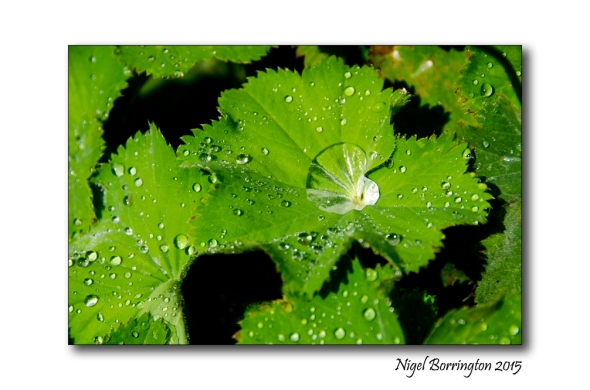
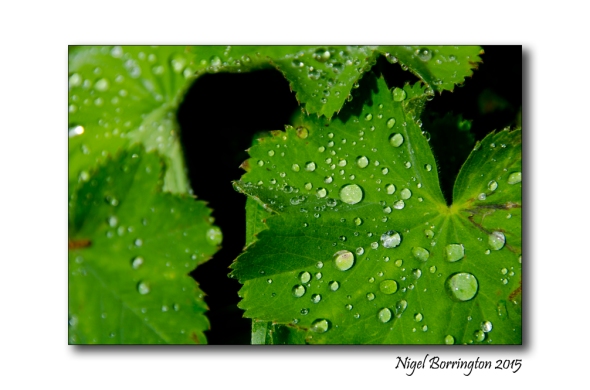

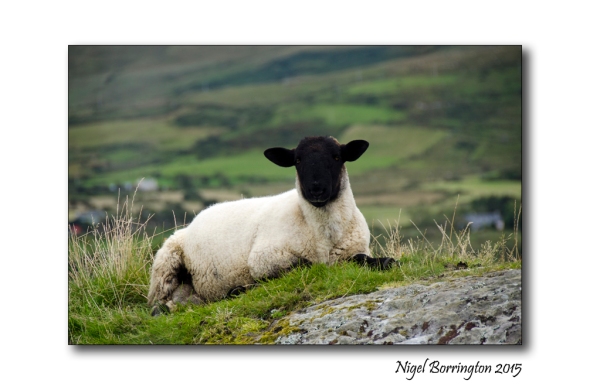

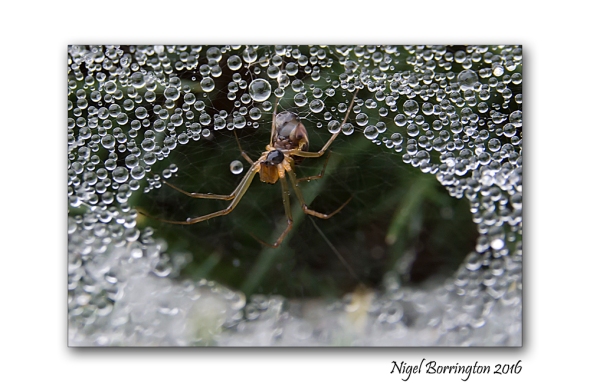
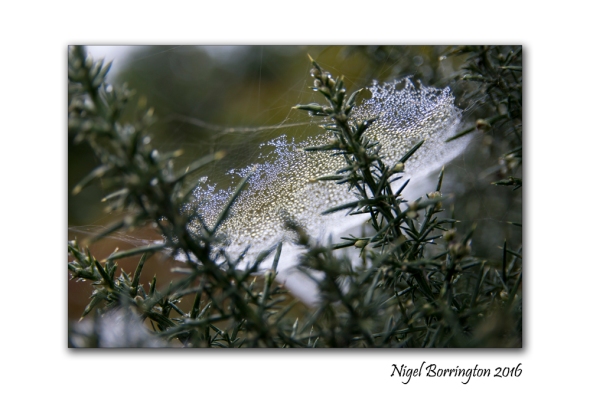
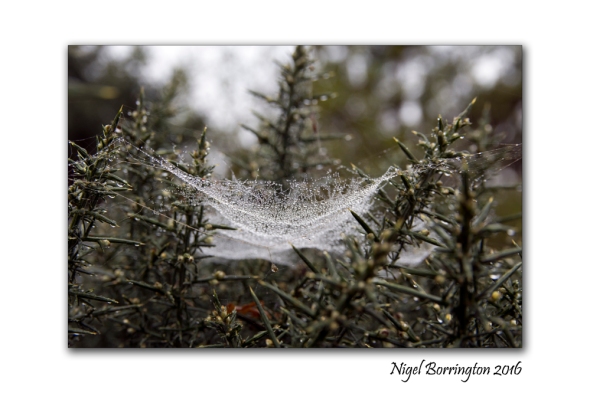






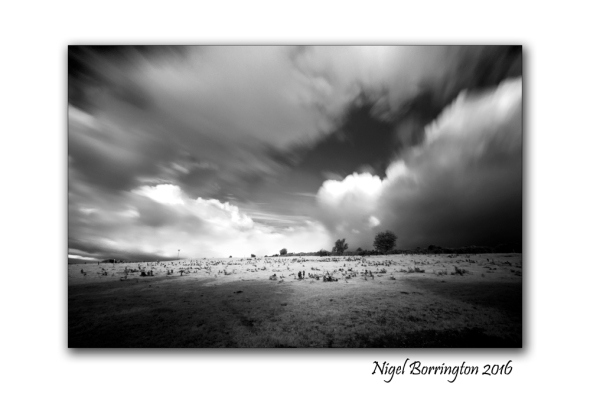
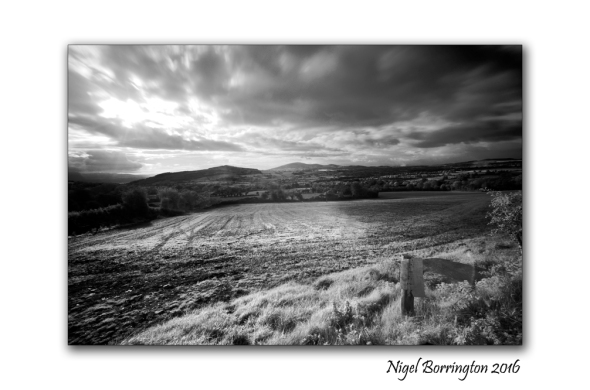
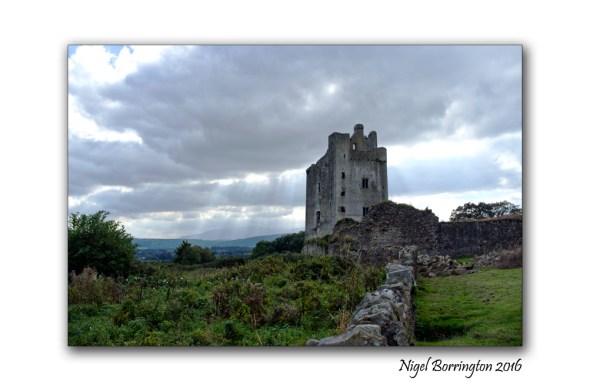

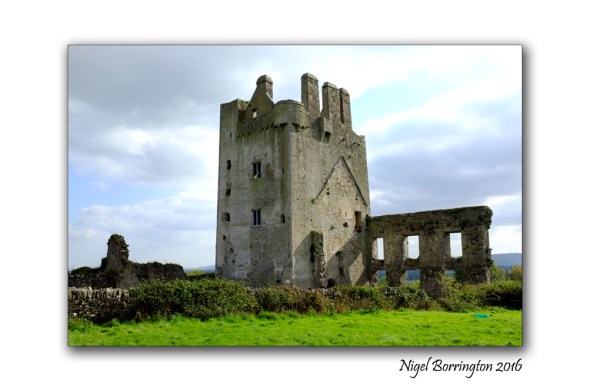

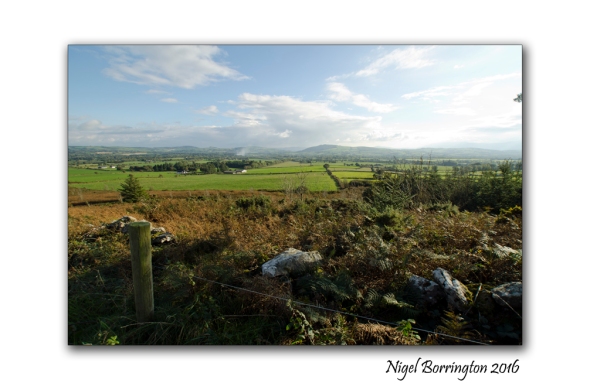
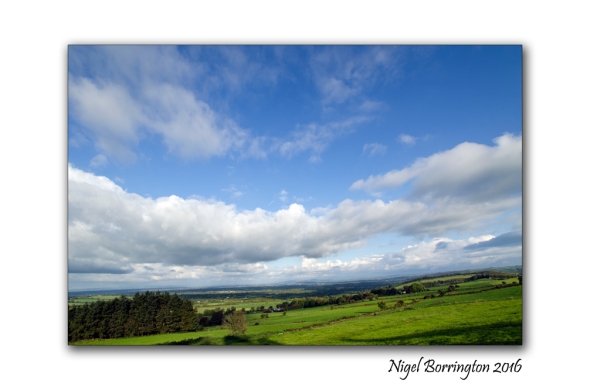


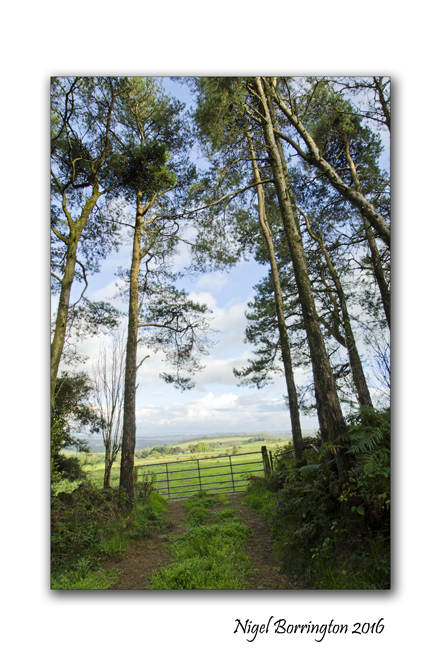

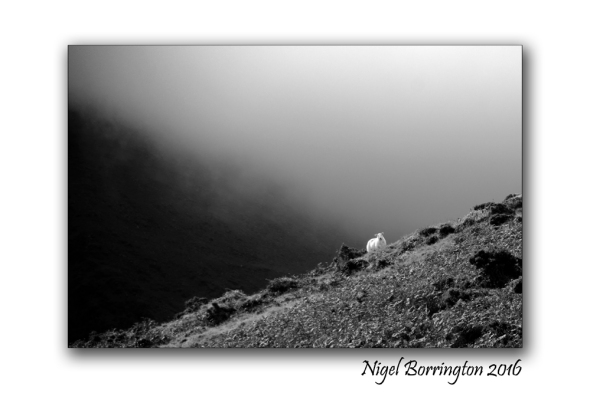











Callan, County Kilkenny, life in a small town a personal perspective ….
Callan
County Kilkenny
Nigel Borrington
Callan, County Kilkenny – life in a small town from a personal point of view
Today I found myself without any transport other than my much loved bicycle, which has been used a great deal this year, on evening and weekend cycles just the two of us out doors.
By lunch time I was feeling a little trapped and went out again for a cycle, out of the town into county Tipperary, on the way back into Callan I stopped for five minutes to take a look at the moat field and the Kings river.
I have lived in this small town now for well over a decade, it’s amazing how fast time passes.
In my first few years living here, I found that there was some pressure to get involved with what was happening locally and did so, taking part in some local exhibitions with other local artists and photographers, however it almost eight years since these times. In the years that followed these exhibitions, I did wedding photography and portraits along with some commercial work. I also keep up with painting and my art.
Standing today looking across the view of the town it occurred to me that I am much happier now, as in these days that I feel a little less involved with such deep local happenings. I don’t know if anyone else has experience in their lives when moving from a bigger urban part of the world to smaller places?
In a city everything feels much more established and if you get involved with an event then you find that you are only one of many before you who have been involved. Your involvement is only a small part of a much bigger well established picture. You can help as much or as little as you want and it is mostly understood that your involvement is for your personal growth and expression as much as it is about the establishment your offering your valuable time !
To Myself however the biggest difference relates to the personal interests that people have by getting involved in local events in the first place, in the large context of a city most people get involved in order to be self expressive, to help themselves grow personally and to add new elements to their lives, this is all about the self and very little to do with the local town or even others. After all the local town should be about everyone living in it !
Personally!! I found this to be a massive difference when coming to live in a smaller setting, with massive respect to people, most people’s lives are slower here and general activities less available, this I feel increases the pressure on their involvement in almost anything. Personal Involvement becomes deeper and seems to almost take on an irrational level of importance!
As an example I was asked many times to attend some meetings, in the build up to a local festival in the town. I think this was due to the fact I have local family and had held some local exhibitions, one when the town was 800 years old. It was not until I realised that these festival meetings started almost the moment that the last festival had ended, to plan the next year’s festival, that I had some concerns. I wondered sometimes just who could benefit from such an exhausting process? In the end I decided that I personally would not benefit and would only end up exhausted!!
One thing you really notice in a smaller place is everything is about the town , here in my own example “Callan” and less about the bigger general activity you want to be involved in ! e.g. Art or Walking or Cycling. The emphasis is on “Callan” infront of all these things not just , the Cycling club or the Art club !
I can fully imagine that if any one local reads this they will wonder if I am having a go at them personally! , well I am not! All I am doing is pointing out my personal observations and experiences when doing my very best to make a transition from one place in the world to another!!
I don’t know why but It’s a small bit hard to say these things on my blog, however I feel that this is one reason for me having a blog in the first place, so that from time to time I can express personal feelings along with sharing images and the poems that I do share. It is also much easier to do so now as these days I am feeling that in my life I have found a more relaxed existence, a more laid back approach to local life.
I have managed to separate how I feel personally from how well this town is doing or even what the people of this town are doing. How I feel in myself is about me as a person, the things I do or chose not to do. To be content in myself is less about being over involved with activities, things that mostly only keep me active without having any true personal benefit, I have also become able to analyse if it is only others who want to completely benefit themselves from my personal energy and time.
Share this:
October 27, 2016 | Categories: Comment, kilkenny photography, Landscape, Nigel Borrington | Tags: Callan, changing homes, Kilkenny, Life in a small town, lifes changes, moving from a city, Nigel Borrington, personal comment | 2 Comments